The outrage over the disappearance and alleged murder of Jamal Khashoggi, a high profile critic of the Saudi regime has firmly brought Mohammed bin Salman’s tenure in the international spotlight. It has been more than a week since Khashoggi walked into the Saudi consulate in Istanbul in connection with paperwork for his impending marriage and hasn’t emerged since. Turkish officials allege that he was slain by a team of Saudi assassins on instructions from the royal court while the Saudi’s deny any involvement. The incident has the potential to upset the fragile balance of power in the Middle East. It also stands to unmask the authoritarian tendencies behind the veneer of reformism trumpeted recently by Riyadh.
If it turns out that Khashoggi was killed, it will heighten the perception that the crown prince (MBS as he is known), is perhaps more of a tyrant than a benign reformer. The advertising blitzkrieg that accompanied his visit to the United Kingdom earlier in the year with billboards proclaiming that MBS is ‘bringing change to Saudi Arabia’ and is ‘empowering women’ might have lead one to believe that a beacon of liberalism has arrived in Saudi Arabia.
Yet the truth is far more troubling. The 2018 Index of World Press Freedom compiled by reporters without borders ranks Saudi at a lowly 169 in a survey of 180 countries. Its report highlights that the kingdom ‘permits no independent media and tolerates no independent political parties, unions, or human rights groups’ with citizens at risk of being detained arbitrarily without trial, mistreated in detention, and subjected to barbaric punishments such as flogging. The report concludes with a stark observation that despite his talk of reform, ‘the young Mohammad bin Salman’s appointment as crown prince in June 2017 has had no positive impact on the freedom to inform’.
Far from presiding over a ‘Saudi Spring’, MBS has locked up thousands of activists. Last November, he detained the Lebanese PM Saad Hariri for a fortnight. In March this year, a women’s rights campaigner, Loujain al-Hathloul was detained in Abu Dhabi and thrown in jail in Saudi. The crown prince’s brutal handling of even mild criticism is likely to overshadow relaxation in other areas such as letting women drive and letting them to work. Recall, too, the Saudi furore over Canadian human rights criticism by withdrawing its ambassador from Ottawa, declaring the Canadian emissary in Riyadh persona non grata and suspending flights. As MBS’ regime starts to morph into an old fashioned dictatorship – authoritarian and centralised – the vision of a new tolerant Saudi may be diminishing.
From a geo-political perspective, the incident will put more strain on delicate fault-lines in the Middle East with global implications. Recep Tayyyip Erdogan, the Turkish president, may have cause to take umbrage about the purported crime since it appears to have taken place within Turkey. The two countries are at loggerheads, with Saudi Arabia concerned about Erdogan’s neo-Ottamanism and growing military clout in the Middle East. Relations between the two nations have been given differences over Syria, Riyadh’s diplomatic stand-off with Qatar and Turkey’s alliance with Iran. Matters weren’t helped by Doha’s 15 billion-dollar loan to Ankara to tide it through economic turbulence. Now, it is all coming to a spectacular head.
The irony is that Erdogan is no flag bearer for liberalism. Under his tenure, Turkey has slid into right wing religious zealotry in contrast to the secularist tradition moulded by Ataturk. Turkey remains the world’s biggest prison for journalists with members of the press spending more than a year in prison before trial and long sentences becoming the norm.
On a related point, hostility to the press is not just a preserve of ruthless dictators. Democratically elected leaders have not helped either. If Trump’s reference to reporters as the creators of ‘fake news’ has stoked tension, President Duerte of Philippines has chillingly warned them as not being ‘exempted from assassination’. Indians should reflect on the deaths of twelve journalists in 2017, including the newspaper editor Gauri Lankesh.
Turning again to the latest furore, how should the western powers react? Saudi Arabia has been viewed as a key ally in Washington as it seeks to counter Iran’s ambition in the region. With the US due to imposed oil sanctions on Iran in the coming weeks, Saudi support will ostensibly be crucial in mitigating a crude oil global shortfall. Moreover, there are enormous defense contracts at stake for the US and the UK. President Trump has ruled out cancelling any contracts but at the same time, has threatened ‘severe punishment’. Therein lies the contradiction. The truth is that the West’s relationship with Saudi has been one of uneasy coexistence at best and hypocrisy at worst. The time has come for the west to acknowledge the limitations of appeasing an unscrupulous Saudi regime. Liberal democracies must unabashedly champion the values they believe in. Intrinsic to that belief is the idea of cherishing freedom. Anything less would be a disservice to Jamal Khashoggi and many others who were prepared to live — and die — for daring to speak truth to power.

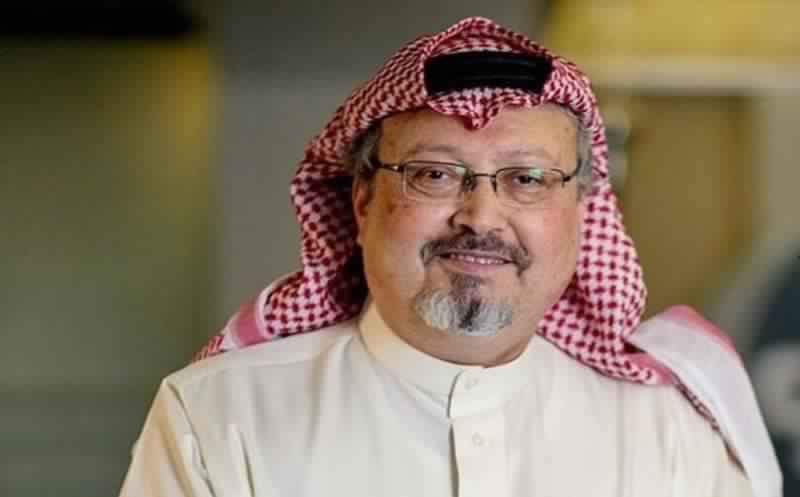




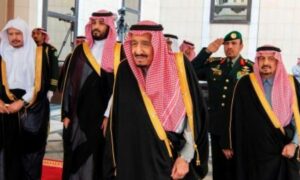



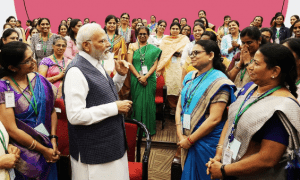

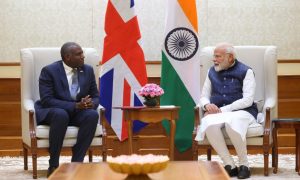

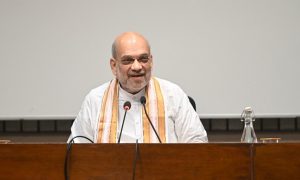



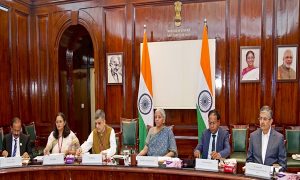

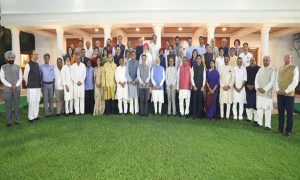





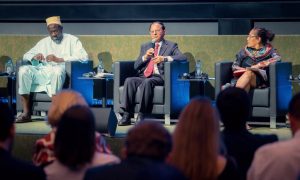

 WhatsApp us
WhatsApp us